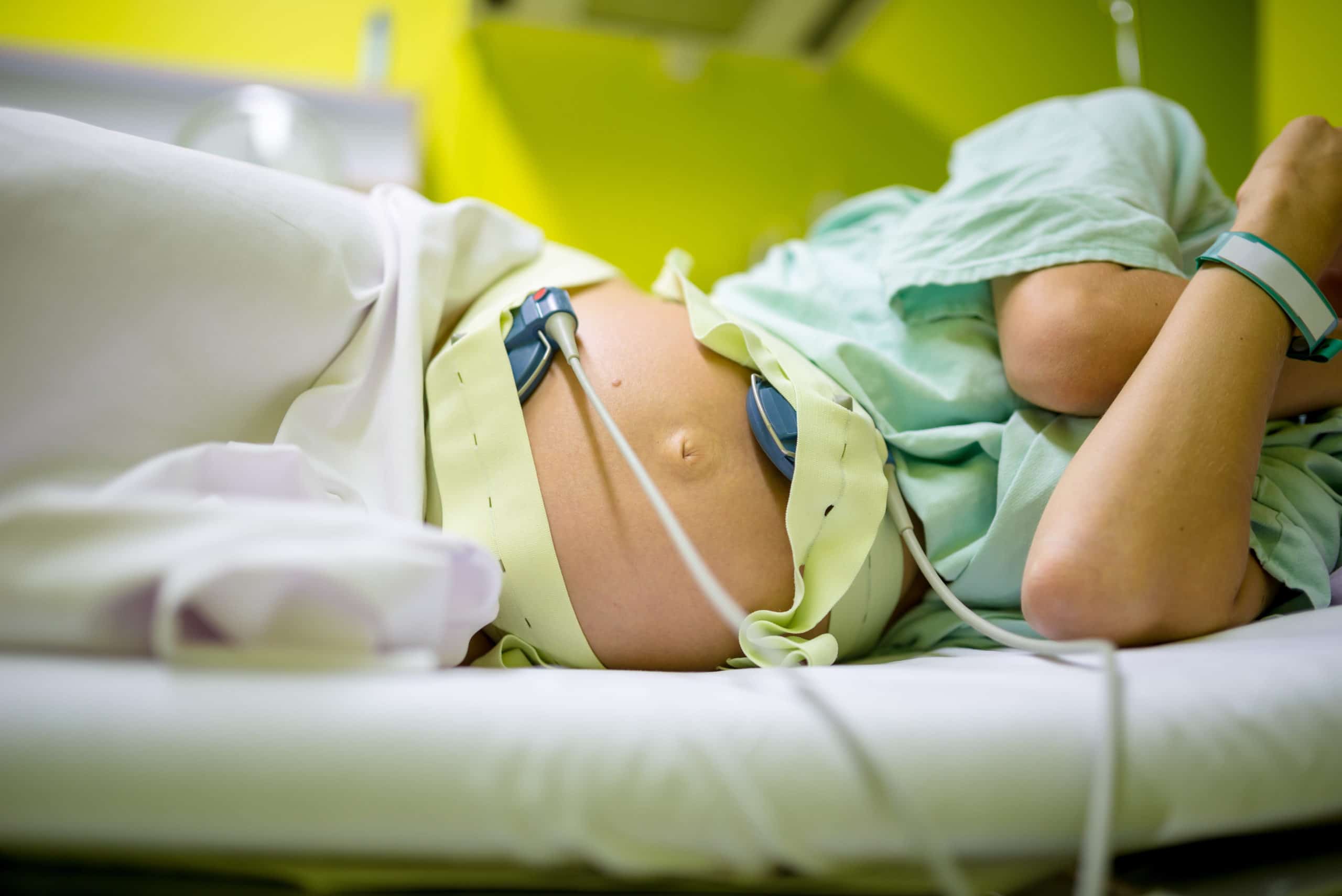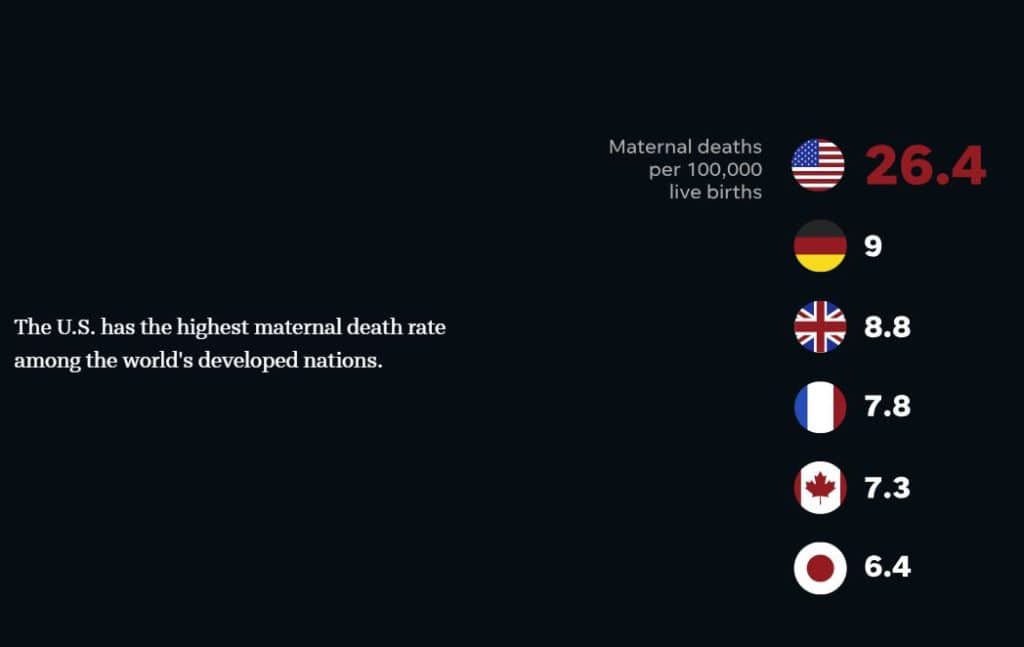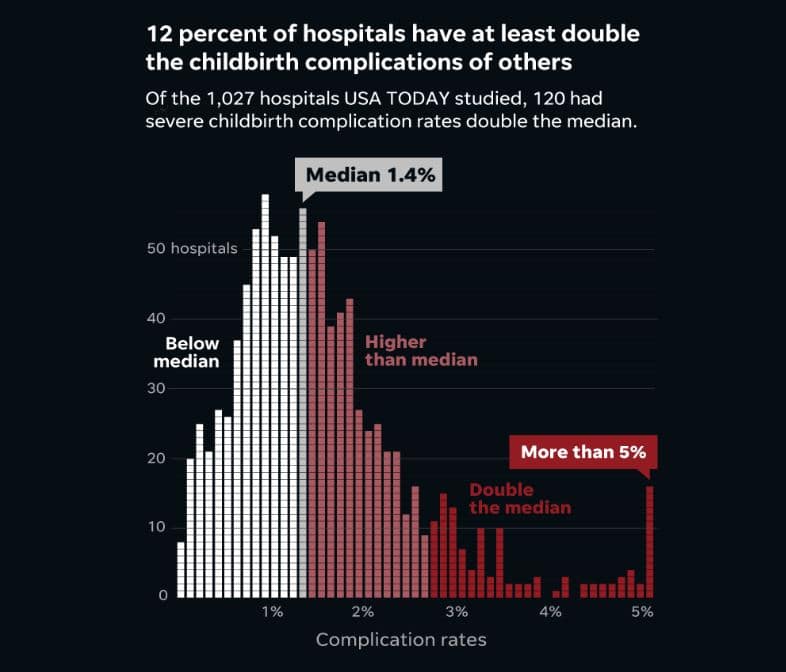
Secret Data: Hospital Complication Rates are Much Higher than the Norm During Childbirth
hospital complication rates
The United States has the highest rate of maternal deaths of any developed nation. Now, secret data from an in-depth analysis of more than seven million births in the U.S. suggests that hospital complication rates are much higher during labor and delivery than is commonly thought. What’s more, complications and difficult deliveries are often blamed on the mother – from socioeconomic status to pre-existing conditions.

At MedMalFirm.com, we work with clients who have suffered from preventable complications in hospitals on a daily basis. As a patient, you have a right to quality healthcare that meets accepted standards. You also have a right to be informed about potential risks, including hospital complication rates.
Read on to learn more about what is being called “secret data”, and find out how you can check hospital complications in your community.
Hospital Complication Rates During Childbirth
Across the U.S., childbirth injuries and maternal death rates continue to rise. Currently, there are around 50,000 maternal injuries each year, and another 700 maternal deaths in the U.S. Researchers have determined that around 50 percent of these injuries and deaths could be prevented with proper medical care.
The USA TODAY report offers “a window into the opportunity for improving maternal care” – Dr. Elliott Main
Based on these rates and ongoing concerns about maternal care, USA TODAY worked with experts to analyze data on hospital complication rates during childbirth. The results were startling. Hospitals in 13 states were examined, and a total of seven million births were analyzed. Hospital complication rates were gathered from 1,027 hospitals using a formula that was developed by the Centers for Disease Control and Prevention (CDC).
For many years, the U.S. government has allowed hospitals to keep complication rates related to childbirth private. The USA TODAY investigation is the first time that this previously secret data has been available for analysis.
The data showed that most hospitals have a childbirth complication rate of around 1.5 percent. However, around one out of every eight hospitals have injurious or potentially deadly deliveries at least twice as often as the majority. In the USA TODAY investigation, that accounted for around 120 hospitals across the U.S. with uncommonly high complication rates. These hospitals range from big-city facilities in states like New York, to more rural communities in Kentucky.

Why are Hospital Complication Rates so High?
There are several reasons documented why hospital complication rates are so high among the hospitals studied. The most common factors include:
- Poor women have less access, or less consistent access, to proper prenatal care.
- African-American women are more likely to experience prenatal conditions like hypertension, blood disorders, or other complications of pregnancy.
- Hospitals in poor communities may not be fully equipped to handle complications during delivery.
Even with these commonly cited factors, the USA TODAY investigation revealed that the facilities with the highest hospital complication rates were consistently concerning regardless of race or the type of complication. At the same hospitals where African-American women were more likely to suffer injury or death during childbirth, Caucasian women were also three times more likely to experience fatal complications. Complication rates were also higher among women who had health insurance.
Are Trainee Hospitals Dangerous?
Another possible explanation for high hospital complication rates at these 120 facilities is the fact that many of them are training sites for obstetrician and gynecologist (OB/GYN) residency programs. Of the 120 hospitals studied, 56 are training sites for OB/GYN, and 22 have accreditation histories including warnings or probation, or both.
When labor and delivery is facilitated only by students or new graduates, complications may not be as easily recognized and treated. Trainees may be reluctant to call for help, or may not want to admit that they made a mistake. The result of these negligent actions can be life-threatening for mothers and babies.
Maternal Morbidity Rates at Texas Hospitals
In the USA TODAY report, 204 of the hospitals studied were in Texas. The median morbidity rate for mothers during childbirth was 1.4 percent. This is equal to the national morbidity rate across the 13 states studied. However, some hospitals in Texas had startling and concerning maternal morbidity rates classified as “severe maternal morbidity” rates, or SMM. These hospitals include:
- Southwest General Hospital in San Antonio – Had a SMM rate of 5.8%
- Parkland Memorial Hospital in Dallas – Had a SMM rate of 4.9%
- Harlingen Medical Center in Harlingen – Has a SMM rate of 3.3%
- Texas Children’s Hospital Pavilion for Women in Houston – Had a SMM rate of 3.3%
- Memorial Hermann – Texas Medical Center in Houston – Had a SMM rate of 3%
- Texas Health Harris Methodist Hospital in Fort Worth – Had a SMM rate of 2.9%
- Dell Seton Medical Center at The University of Texas in Austin – Had a SMM rate of 2.1%
- Christus Spohn Hospital in Corpus Christi (South) – Had a SMM rate of 1.8%
- Hospitals of Providence Memorial Campus in El Paso – Had a SMM rate of 1.7%
- University of Texas Medical Branch at Galveston – Had a SMM rate of 1.6%
- Laredo Medical Center in Laredo – Had a SMM rate of 1.4%
- Valley Regional Medical Center in Brownsville – Had a SMM rate of 1.4%
- Texas Health Arlington Memorial Hospital in Arlington – Had a SMM rate of 1.3%
As these numbers suggest, childbirth complication rates are high at a wide range of hospitals. Some facilities are well-funded and equipped, while others are more rural.
If you would like to search for hospitals in your area, you can access the Deadly Deliveries Database and find details about many of the hospitals studied.
Learn More about Hospital Complication Rates in Your Community
Whether you are pregnant, planning to conceive, or are a concerned family member, you can learn more about hospital complication rates in your community by visiting USA TODAY’s Deadly Deliveries Database.
If you have questions or concerns about a labor and delivery experience, complication, or birth injury that you or a loved one has experienced, you may also find it helpful to contact a medical malpractice attorney. At MedMalFirm.com, we are advocates for you as a patient. Let us help you understand your legal rights, the standards of care, and what options you may have to take legal action if you have been harmed by medical negligence.
We offer every potential client a free consultation, so you have nothing to lose by consulting with one of our Texas and Louisiana medical malpractice attorneys. Fill out our online form to request your consultation.
